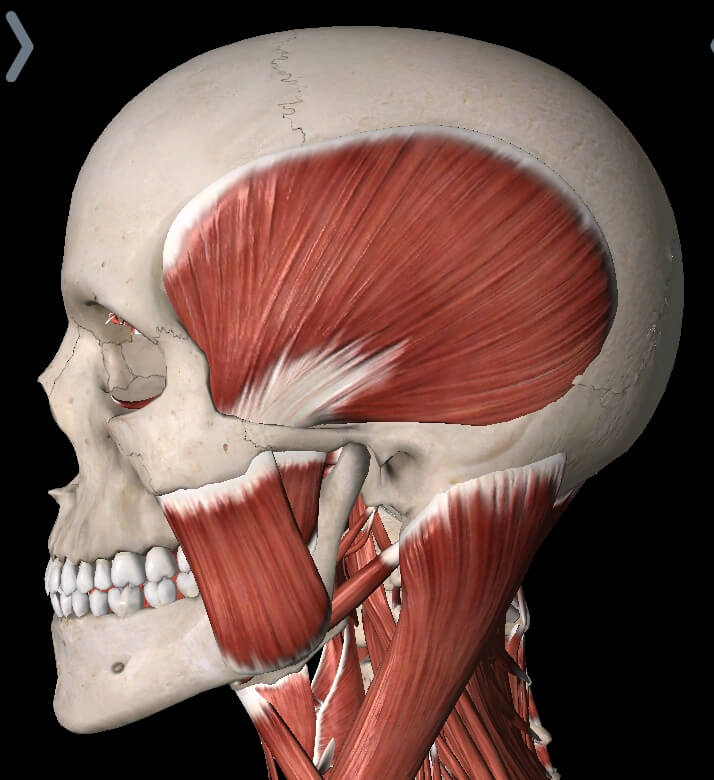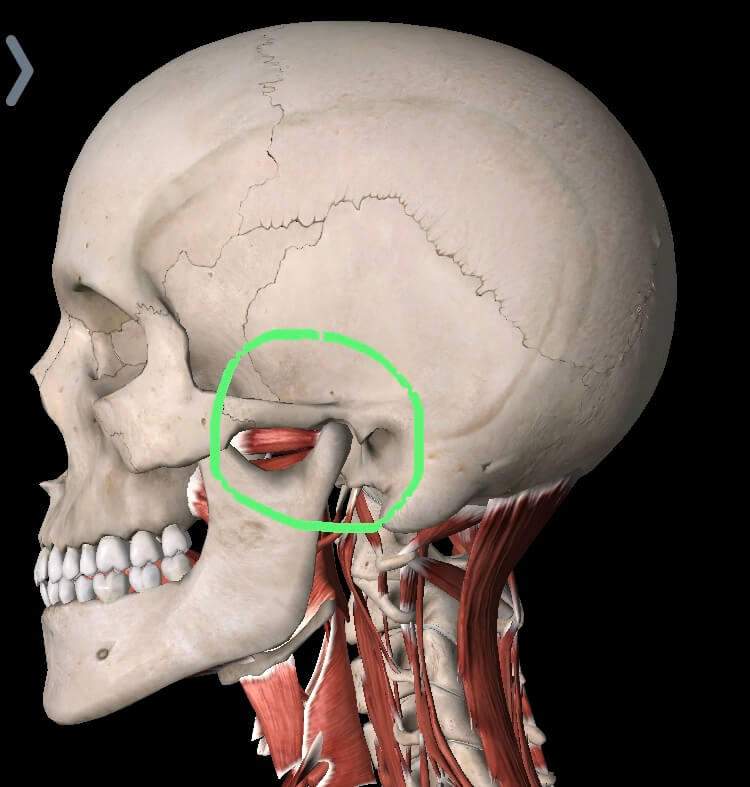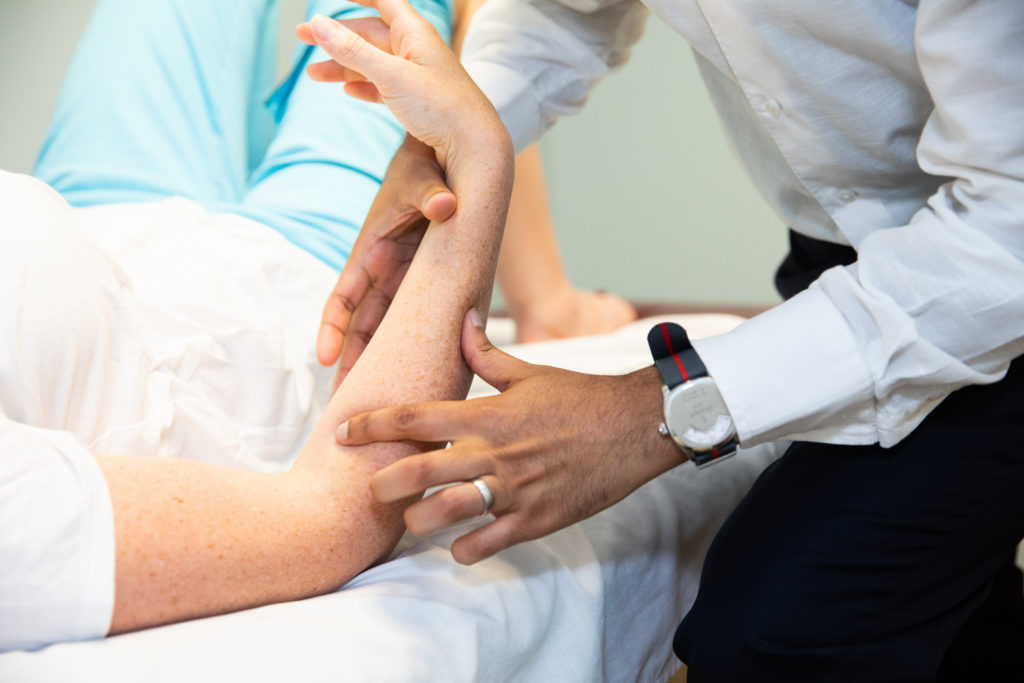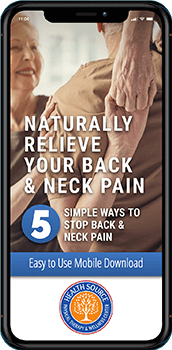Your Guide to Temporomandibular Joint Disorders
Images from Essential Anatomy App.

Images from Essential Anatomy App.
If you experience pain or clicking when chewing, yawning, or simply biting into a big sandwich, then odds are that you have a TMJ Disorder. TMJ stands for Temporomandibular Joint. These pains and problems tend to go undiagnosed, and rarely receive effective Physical Therapy care. Many times, TMJ Disorders can also lead to headaches.
TMJ Disorders are surprisingly common. Up to 33% of individuals, or 1 out of every 3 people, suffer from this. Unfortunately, most people are simply told that they “have to live with it” and aren’t referred to a physical therapist skilled in treating TMJ Disorders.
What Causes Temporomandibular Joint Disorder?
Just like any other joint in your body, the TMJ is also vulnerable to repetitive stresses and injuries. Additionally, the TMJ includes a variety of anatomical parts, including muscles, ligaments, and a disk. Inefficient functioning of these parts can lead to suboptimal functioning of your TMJ. Here are some common causes of TMJ Disorders:
-
Inefficient Posture. Maintaining a continuously inefficient posture of the head and neck can sometimes lead to excessive strain on the muscles, disk, and ligaments of the joint. The jaw is then forced to remain in position that could lead to pain and/or discomfort in the long run. In addition to this, the primary chewing muscles start experiencing stresses and strains that do not allow them to function effectively for their primary task – chewing food.
-
Joint Displacement. This is another common cause of clicking and pain in the jaw. In this case, the soft tissues of the joint (ligaments, tendons, etc.) may not be in the best positions to be performing their job.
-
“Bruxism” or persistent clenching. Many folks find themselves constantly clenching their jaw. This can lead to jaw muscle tightnesses and strains, which in turn can cause jaw pain, which then perpetuates the cycle of clenching. Stress can also contribute to persistent clenching.
-
“Lockjaw”. This happens when the jaw muscles go into a spasm which makes it difficult to either fully open or fully close your jaw.
-
Trauma. Direct injury to the jaw, face, or neck.
-
Fracture. Even when the fracture is fully healed, TMJ stiffness and pain may remain.
-
Surgery. Individuals may experience a loss of TMJ mobility and function following certain kinds of face and jaw surgeries.
-
Malocclusion. This is when your teeth aren’t properly lined up to perform chewing or biting motions effectively.
What are the Symptoms of TMJ Disorders?
Some common symptoms include:
-
Jaw pain – when taking a bit, eating, talking, or simply when waking up in the morning
-
Difficulty opening your mouth to bite, chew, and/or talk
-
Headaches
-
Jaw locking
-
Jaw clicking or popping
-
Neck pain
Why Physical Therapy is a Great Option for TMJ Disorders:
-
We look at more than your Jaw. Sometimes contributing factors to your TMJ pains/problems may come from your neck and/or upper back. We will conduct a comprehensive examination to evaluate all the contributing factors and come up with the best treatments options for you.
-
No drugs or injections! Our treatments often include education, hands-on treatments, and some exercises. Your liver and kidneys will thank you 🙂
-
Specialized Treatments. We utilize a variety of hands-on techniques (manual therapy) to safely increase movement and restore efficient functioning of your jaw. This may involve direct treatments for joint mobility, muscle tightness, and re-education of the jaw muscles.
-
Referral to your Dentist. If we determine that you are not the best candidate for physical therapy treatments, then we will promptly refer you to your dentist.
We will be happy to work in conjunction with your dentist or physician for the most comprehensive treatment possible. Most health insurances in the state of Michigan now allow individuals to self-refer to physical therapy without a referral from a physician or dentist.
Ready to get started? Tell us a bit about your story here.
At Health Source, we help people avoid unnecessary surgeries (shoulder, hip, knee, low back, etc.). We also help rehab individuals who have had surgeries so that they can maximize their recovery and enjoy life again.
Our specialized clinicians look at your body through the lenses of Mechanics (how are things moving), Neuromuscular Engagement (how efficiently your muscles are working), and Motor Control (coordinating your body so that you can get back to doing what you want to do). This involves comprehensive evaluations, hands-on care, education, movement re-training, and individually tailored exercises to help you fully recover.
CONNECT WITH US TO FIND OUT HOW WE CAN HELP YOU
The images above are from the Essential Anatomy app. As many of our patients and students know, we are huge fans of the Essential Anatomy App. It is fantastic for showing and teaching anatomy in the clinic. Check it out here.
Tags: headache, westphalia, grand rapids michigan, ionia, westphalia michigan, physiotherapy, ionia mi, pain, yawning, jaw, ionia michigan, dewitt michigan, tmj, joint, grand ledge michigan, biting, lake odessa, physical therapy, chewing, lake odessa michigan, portland, dental, michigan, portland mi, dentist, neck, portland michigan, face, opening jaw, dewitt, headacches, opening mouth, grand ledge




